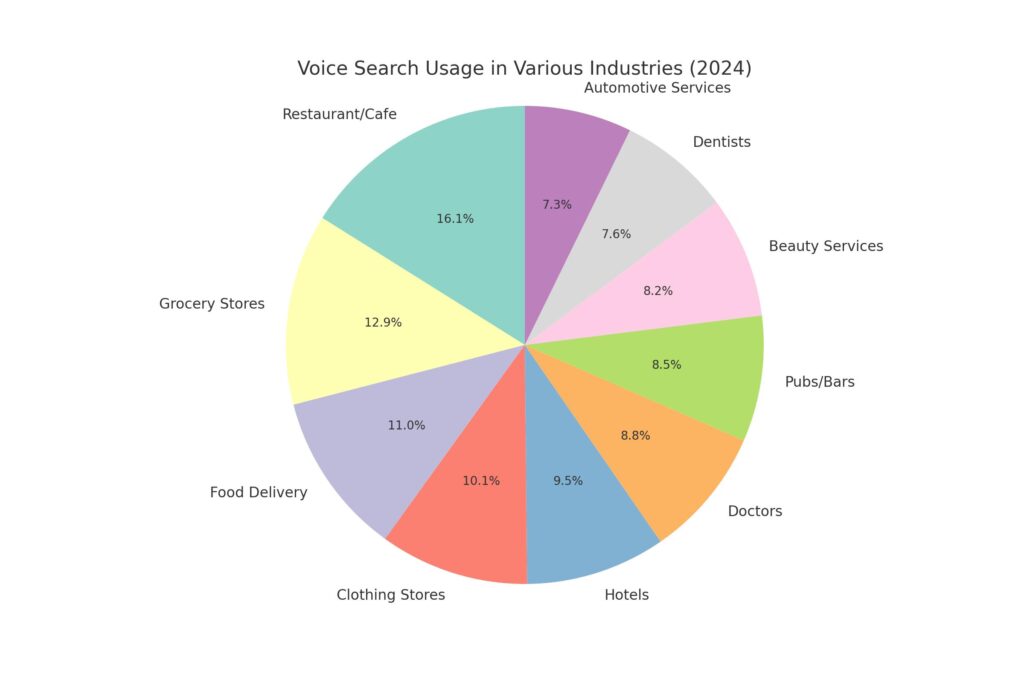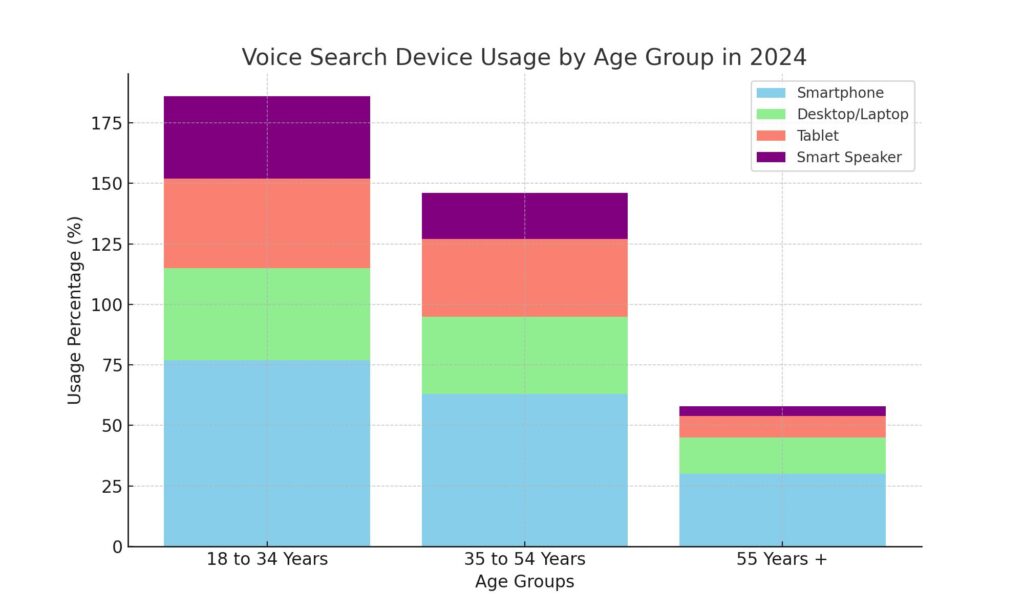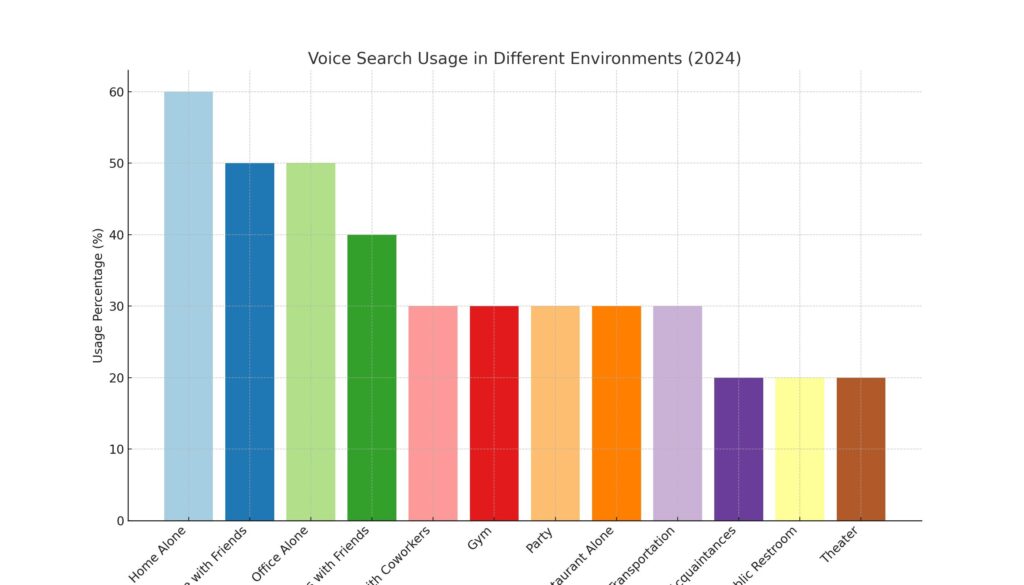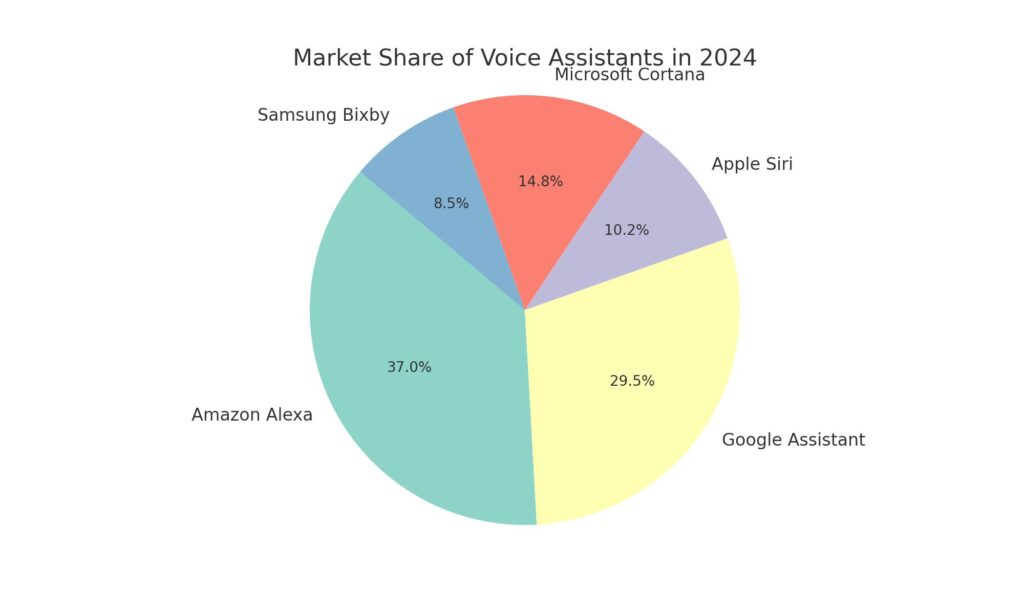Are you ready to dive into the exciting world of optimizing your website for the future of search?
As someone who’s been in the trenches of voice search optimization for the past 5 years, I’ve seen firsthand how this technology has transformed the way people find information online. And let me tell you, it’s not just a passing fad – it’s here to stay!
In this ultimate guide, we’ll explore the ins and outs of voice search optimization, from understanding what it is and why it matters, to implementing practical strategies that will help you dominate the search results. So, grab a cup of coffee, sit back, and let’s get started on this exciting journey together!
- What is Voice Search Optimization?
- Why Voice Search Optimization Matters More Than Ever
- How Voice Search Works
- Top 7 Strategies to Optimize Your Site for Voice Search
- Measuring and Analyzing Voice Search Performance
- The Future of Voice Search and SEO
- Wrapping Up
- Frequently Asked Questions About Voice Search Optimization
- What is voice search optimization?
- Why is voice search optimization important?
- How does voice search differ from traditional text search?
- What are the key strategies for optimizing for voice search?
- How can I find the right keywords for voice search optimization?
- What types of content work best for voice search?
- How important are featured snippets for voice search optimization?
- What role does local SEO play in voice search optimization?
- How can I measure the success of my voice search optimization efforts?
- What does the future hold for voice search and SEO?
What is Voice Search Optimization?
First things first, let’s define what we’re talking about. Voice search optimization is the process of optimizing your website and its content to appear in voice search results. Unlike traditional text-based searches, where users type their queries into a search engine, voice searches involve speaking to a virtual assistant like Siri, Alexa, or Google Assistant.
When a user asks a question or makes a request using their voice, the virtual assistant scours the internet for the most relevant and accurate answer. And that’s where voice search optimization comes in – it’s all about making sure your website is the one providing those answers!
Now, you might be thinking, “How is voice search different from regular ol’ text search?“
Great question! While both types of searches aim to provide users with the information they’re looking for, there are a few key differences:
- Voice searches tend to be more conversational and natural in tone, often phrased as questions or commands.
- Voice search queries are usually longer and more specific than text-based searches.
- Voice search results are typically read aloud by the virtual assistant, rather than displayed on a screen.
Understanding these differences is crucial to creating content that’s optimized for voice search. But more on that later – let’s talk about why voice search optimization matters in the first place.

Why Voice Search Optimization Matters More Than Ever
If you’re not convinced that voice search optimization should be a top priority for your website, let me hit you with some mind-blowing statistics:
- By 2024, it’s estimated that there will be 8.4 billion digital voice assistants in use worldwide – that’s more than the global population!
- 27% of the global online population is already using voice search on their mobile devices, making it a critical component of digital marketing.
- A whopping 91% of brands are investing in voice technology to enhance their digital presence.
These numbers don’t lie – voice search is growing at an incredible rate, and it’s showing no signs of slowing down. As more and more people use voice search and embrace the convenience and ease of using virtual assistants to find information, businesses that fail to optimize for voice search risk being left behind.
But voice search optimization isn’t just about keeping up with the latest trends – it’s also about providing a better user experience. By creating content that’s tailored to the way people naturally speak and ask questions, you’re making it easier for them to find the information they need quickly and efficiently. And in today’s fast-paced world, that’s a huge competitive advantage.


How Voice Search Works
Alright, now that we’ve covered the what and the why of voice search optimization, let’s dive into the nitty-gritty of how it actually works. When a user makes a voice search, there are a few key steps that happen behind the scenes:
- Speech Recognition: The virtual assistant uses advanced speech recognition technology to convert the user’s spoken words into text.
- Natural Language Processing (NLP): Once the speech is converted to text, NLP algorithms analyze the query to understand the user’s intent and context.
- Information Retrieval: Based on the understood intent, the virtual assistant searches through its database of information (which includes websites, apps, and other connected devices) to find the most relevant answer.
- Response Generation: The virtual assistant then generates a response, which is typically spoken back to the user in a natural, conversational tone.
It’s a complex process, but it all happens in a matter of seconds, illustrating the effectiveness of voice search devices. And as voice technology continues to advance, with improvements in speech recognition accuracy and NLP capabilities, the results are only going to get better and better.
Now, you might be wondering, “Which virtual assistants should I be optimizing for?“
While there are many players in the voice search game, the big four to focus on are:
- Google Assistant (used on Android devices and Google Home speakers)
- Apple’s Siri (used on iOS devices and HomePod speakers)
- Amazon’s Alexa (used on Echo devices and other Alexa-enabled products)
- Microsoft’s Cortana (used on Windows devices and Xbox consoles) is an example of voice search technology requiring effective SEO strategies.
Each of these virtual assistants has its own unique capabilities and features, but they all rely on similar underlying technologies to process voice searches. By optimizing your website for voice search in general, you’ll be well-positioned to appear in results across all of these platforms.

Top 7 Strategies to Optimize Your Site for Voice Search
Alright, enough with the background info – let’s get down to the actionable strategies you can use to optimize your website for voice search! Here are some of the most effective tactics:
1. Conduct Keyword Research for Voice Queries
Just like with traditional SEO, keyword research is the foundation of any successful voice search optimization strategy. But when it comes to voice search, you’ll want to focus on longer, more conversational keywords and phrases that mimic the way people naturally speak.
For example, instead of targeting a short-tail keyword like “best hiking boots,” you might target a longer, more specific phrase like “what are the best hiking boots for women with wide feet?” By anticipating the types of questions your target audience is likely to ask, you can create content that directly addresses their needs.
Some great tools for voice search keyword research include:
- Answer the Public: This free tool generates a list of questions and phrases related to your target keyword, based on real user queries.
- Google’s People Also Ask: When you search for a keyword on Google, you’ll often see a “People Also Ask” box with related questions. These can be great inspiration for voice search optimization!
- SEMrush’s Keyword Magic Tool: This paid tool allows you to filter keywords by question-based phrases, making it easy to find long-tail keywords for voice search.
2. Create Conversational, Question-Based Content
Once you’ve identified the right keywords to target, it’s time to create content that’s optimized for voice search. The key here is to focus on creating content that’s conversational in tone and directly answers the questions your target audience is asking.
One effective strategy is to structure your content in a question-and-answer format, using clear, concise language that’s easy for virtual assistants to parse, aligning with key voice search SEO practices. For example, you might create an FAQ page that addresses common questions related to your products or services, or write blog posts that directly answer specific queries.
Another tactic is to use schema markup, specifically the Question and Answer schema types, to help search engines better understand the content on your page. By explicitly labeling the questions and answers within your content, you increase the likelihood of your website being selected as the featured snippet or voice search result.
3. Optimize for Featured Snippets
Speaking of featured snippets, these are the holy grail of voice search optimization. Featured snippets are the short, concise answers that appear at the top of Google’s search results, often in response to a question-based query, and are crucial for voice search SEO. And when it comes to voice search, featured snippets are often the only result that’s read aloud by the virtual assistant.
To increase your chances of winning a featured snippet, focus on creating content that directly answers the question in a clear, concise way. Use short paragraphs, bullet points, and numbered lists to make your content easy to scan and understand.
You can also use tools like SEMrush’s Position Tracking to monitor your website’s featured snippet rankings and identify opportunities for improvement.
4. Prioritize Page Speed and Mobile-Friendliness
Voice search users expect quick, accurate answers to their queries. If your website takes too long to load or isn’t optimized for mobile devices, you’re likely to lose out on valuable voice search traffic.
To improve your website’s page speed, consider:
- Optimizing images and videos
- Minimizing HTTP requests
- Enabling browser caching
- Using a content delivery network (CDN)
Tools like Google’s PageSpeed Insights can help you identify areas for improvement and provide specific recommendations for speeding up your site.
In addition to page speed, mobile-friendliness is crucial for voice search optimization. With the majority of voice searches happening on mobile devices, it’s essential that your website is responsive and easy to navigate on smaller screens to meet the demands of voice search SEO. Use Google’s Mobile-Friendly Test to ensure your website passes the test.
5. Leverage Structured Data and Schema Markup
Structured data and schema markup are powerful tools for helping search engines better understand the content on your website. By adding specific tags and attributes to your HTML, you can provide additional context about your pages, making it easier for virtual assistants to find and surface your content in voice search results.
Some key schema types to focus on for voice search optimization include:
- Organization: Use this schema to provide information about your business, such as your name, address, phone number, and logo.
- Product: If you sell products on your website, use this schema to provide details like the name, description, price, and availability of each item, enhancing your site’s visibility in voice search engine results.
- Recipe: If you have a food blog or recipe website, use this schema to provide structured data about your recipes, including the ingredients, instructions, and nutrition information.
Tools like Google’s Structured Data Markup Helper and Schema.org can help you generate the necessary markup for your website.
6. Focus on Local SEO
Voice search is often used to find local businesses and services, with queries like “coffee shops near me” or “best Italian restaurant in [city name].” To optimize for these types of searches, it’s essential to focus on local SEO best practices.
Some key tactics to consider:
- Claim and optimize your Google My Business listing, ensuring that your business name, address, phone number, and hours of operation are accurate and up-to-date.
- Include local keywords in your website’s content and metadata, such as your city or region name.
- Encourage customers to leave reviews on sites like Google, Yelp, and Facebook, as these can help improve your local search rankings.
- Create local content, such as blog posts about events or attractions in your area, to demonstrate your expertise and authority in your local market.
By focusing on local SEO, you’ll be better positioned to appear in voice search results for users looking for businesses and services in your area.
7. Build Domain Authority and Backlinks
Finally, as with traditional SEO, building domain authority and earning high-quality backlinks is essential for voice search optimization. The more authoritative and trustworthy your website is in the eyes of search engines, the more likely you are to appear in voice search results.
Some strategies for building domain authority and earning backlinks include:
- Creating high-quality, informative content that other websites will want to link to
- Guest posting on relevant industry blogs and websites
- Participating in online communities and forums related to your niche
- Leveraging social media to promote your content and engage with your audience
Tools like Moz’s Link Explorer and Ahrefs can help you analyze your website’s backlink profile and identify opportunities for improvement.
Measuring and Analyzing Voice Search Performance
One of the challenges of voice search optimization is tracking and measuring your performance. Unlike traditional web searches, voice searches don’t leave a clear trail of data in your analytics platform. However, there are still some ways to gauge your voice search performance and identify areas for improvement:
- Monitor your website’s overall organic search traffic: While you may not be able to directly attribute this traffic to voice searches, an increase in organic traffic can be a good indication that your voice search optimization efforts are paying off.
- Track your featured snippet rankings: Use advanced tools like SEMrush to monitor your website’s featured snippet rankings for target keywords. An increase in featured snippets can be a strong signal that your content is being surfaced in voice search results.
- Analyze your website’s conversions and revenue: Ultimately, the goal of voice search optimization is to drive more traffic, leads, and sales to your website. Keep an eye on your website’s overall performance. If your voice search optimization efforts are driving more traffic and revenue, you’re on the right track!
The Future of Voice Search and SEO
As voice technology continues to evolve and become more integrated into our daily lives, it’s clear that voice search optimization will only become more important for businesses looking to stay ahead of the curve. Here are some key trends and predictions to keep an eye on:
Emerging Voice Search Trends and Predictions
- Increased Adoption of Smart Speakers: As smart speakers like Amazon Echo and Google Home become more affordable and feature-rich, we can expect to see even more households adopting this technology. This means more people will be using voice search to find information, products, and services.
- Advancements in Natural Language Processing (NLP): As NLP technology improves, virtual assistants will become better at understanding and responding to complex queries. This will make voice search even more convenient and accurate, driving further adoption.
- Integration with Other Technologies: Voice search is likely to become more integrated with other emerging technologies, such as artificial intelligence (AI) and the Internet of Things (IoT). For example, we may see voice-activated smart home devices that can control everything from your thermostat to your shopping list.
- Expansion into New Languages and Markets: As voice technology becomes more sophisticated, we can expect to see it expand into new languages and markets around the world. This will create new opportunities for businesses to reach global audiences through voice search optimization.
How to Adapt Your Voice Search Strategy for the Future
To stay ahead of these trends and ensure your voice search optimization strategy remains effective, consider the following tips:
- Stay Up-to-Date with Voice Search Best Practices: As voice search technology evolves, so too will the best practices for optimization. Stay informed about the latest trends and techniques by following industry blogs, attending conferences, and networking with other professionals in the field.
- Continuously Monitor and Analyze Your Performance: Use tools like Google Search Console and analytics platforms to track your voice search performance over time. Look for trends and patterns in your data, and use these insights to refine your strategy.
- Experiment with New Formats and Platforms: As voice search expands into new areas, be open to experimenting with new formats and platforms. For example, you might consider creating voice-activated skills for Alexa or Google Assistant, or exploring voice-based advertising opportunities.
- Focus on User Experience: At the end of the day, the key to success in voice search optimization is providing a great user experience. Continuously gather feedback from your audience and use it to improve your content, website, and overall voice search strategy.
By staying agile, adaptable, and focused on your users, you’ll be well-positioned to succeed in the exciting and ever-evolving world of voice search optimization.
Wrapping Up
Phew, that was a lot of information! But don’t worry – you don’t have to become a voice search optimization expert overnight. The key is to start small, focus on the fundamentals, and continuously iterate and improve over time.
Remember, voice search optimization isn’t a one-time project, but an ongoing process that requires patience, persistence, and a willingness to learn and adapt. By staying informed about the latest trends, experimenting with new strategies, and always keeping your users’ needs front and center, you’ll be well on your way to voice search success.
So, what are you waiting for? Get out there and start optimizing! And if you ever feel stuck or overwhelmed, just remember – even the most seasoned voice search pros were once beginners. With hard work, dedication, and a bit of humor, you too can become a voice search optimization rockstar.
Happy optimizing!
Frequently Asked Questions About Voice Search Optimization
What is voice search optimization?
Voice search optimization is the process of optimizing your website and content to appear in voice search results, which are typically triggered by conversational queries spoken to virtual assistants like Siri, Alexa, or Google Assistant.
Why is voice search optimization important?
Voice search is growing rapidly, with millions of people using virtual assistants to find information, products, and services. Optimizing for voice search can help businesses reach this growing audience of voice searchers and drive more traffic, leads, and sales through targeted digital marketing.
How does voice search differ from traditional text search?
Voice searches are typically longer, more conversational, and phrased as questions compared to text searches. They also tend to be more local in nature and focused on immediate needs, such as finding a nearby business or getting directions.
What are the key strategies for optimizing for voice search?
Key strategies include conducting keyword research for conversational queries, creating question-based content, optimizing for featured snippets, improving page speed and mobile-friendliness, leveraging structured data, focusing on local SEO, and building domain authority.
How can I find the right keywords for voice search optimization?
Use tools like Answer the Public, People Also Ask, and keyword research platforms to identify long-tail, conversational keywords and phrases related to your business or industry. Focus on question-based queries that match the intent of your target audience.
What types of content work best for voice search?
The best content for voice search is typically concise, conversational, and directly answers the user’s question. FAQ pages, how-to guides, and short, informative blog posts tend to perform well in voice search results.
How important are featured snippets for voice search optimization?
Featured snippets are extremely important for voice search, as they are often the only result read aloud by virtual assistants. Optimizing your content to rank for featured snippets can significantly increase your visibility in voice search results.
What role does local SEO play in voice search optimization?
Many voice searches are local in nature, with users looking for businesses, products, or services nearby, making it critical to optimize your Google Business Profile. Optimizing your Google My Business listing, building local citations, and creating local content can help you rank higher in local voice search results.
How can I measure the success of my voice search optimization efforts?
While it can be challenging to directly attribute traffic and conversions to voice search, you can monitor your overall organic search traffic, featured snippet rankings, and website performance to gauge the success of your efforts. Tools like Google Search Console and analytics platforms can help you track your progress over time.
What does the future hold for voice search and SEO?
As voice technology continues to evolve and become more integrated into our daily lives, voice search optimization will become increasingly important for businesses looking to stay competitive in search engine results. Emerging trends like smart speaker adoption, advancements in natural language processing, and integration with other technologies will shape the future of voice search and SEO.
